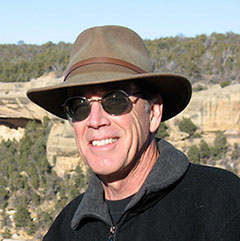A Quote by Paul Davies
A permanent base on Mars would have a number of advantages beyond being a bonanza for planetary science and geology. If, as some evidence suggests, exotic micro-organisms have arisen independently of terrestrial life, studying them could revolutionise biology, medicine and biotechnology.
Related Quotes
I've been collecting articles on extremophile bacteria for at least the last ten years. I find them fascinating, whether they live in boiling pools at Yellowstone, around thermal vents at the floors of the oceans, or on Mars, where NASA has been searching for them as the first evidence of life beyond Earth.





































